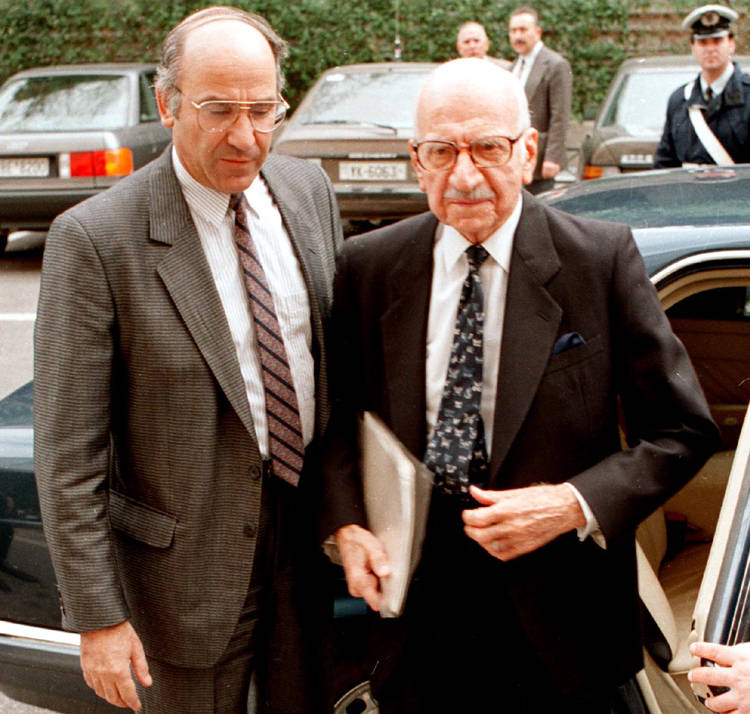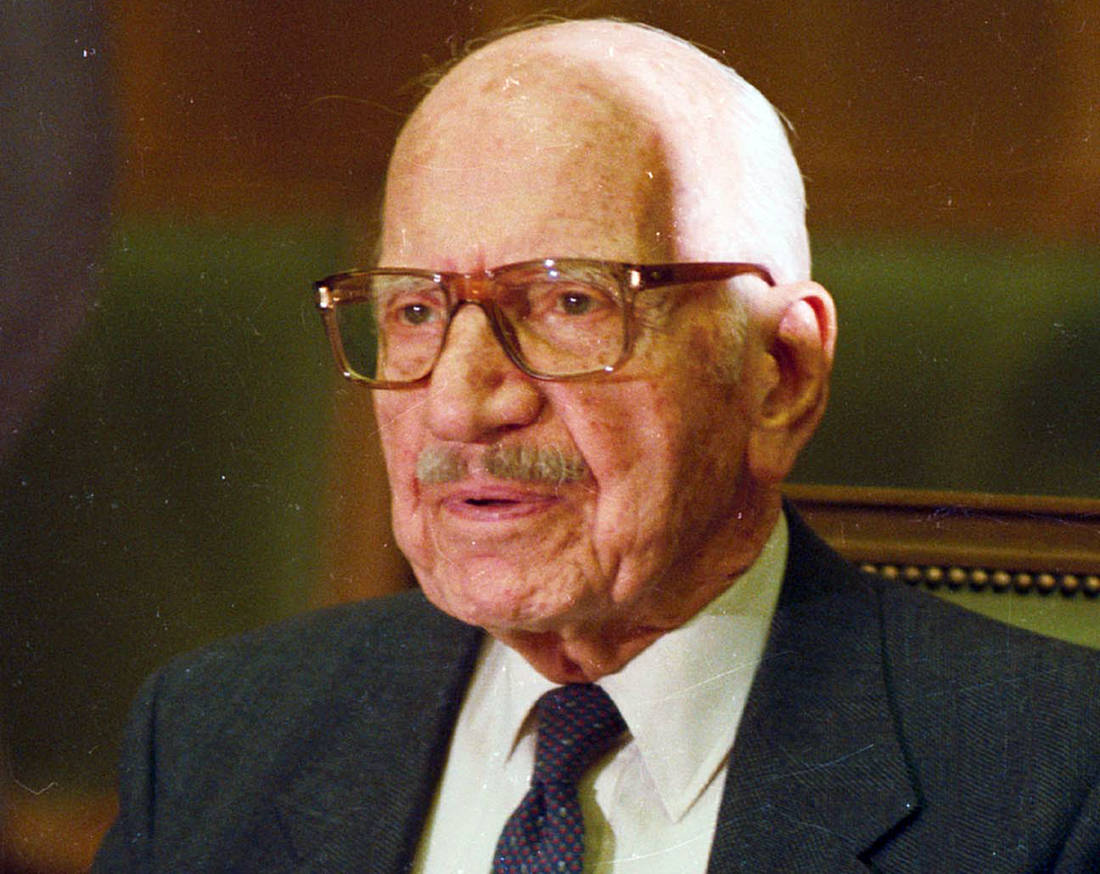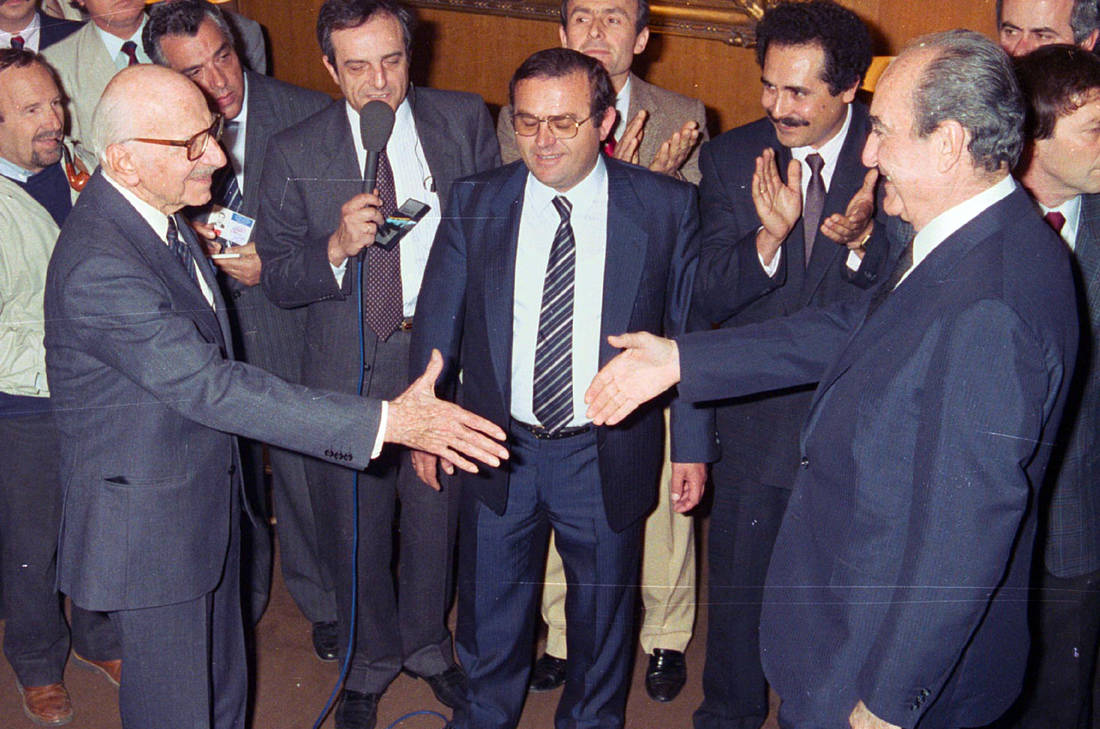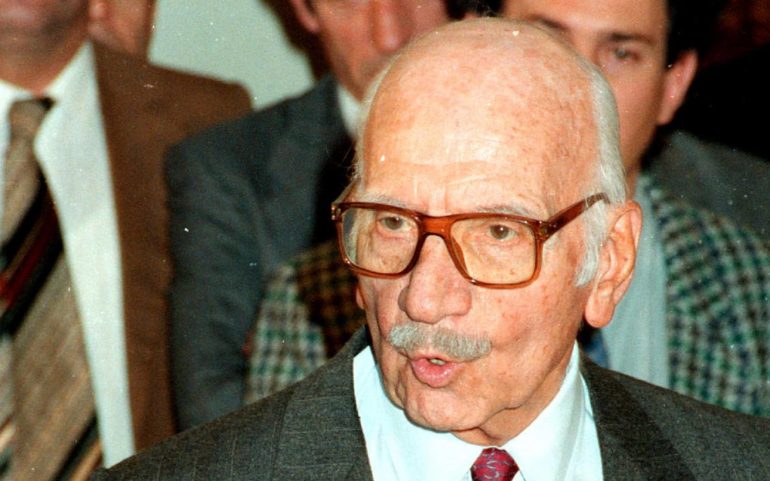The Greek language has been recorded as the richest language in the world and has borrowed several words in many foreign languages. Anyone who searches will find countless words in the sciences and arts that show that the coexistence of different peoples can interact with each other's customs, traditions and the way they communicate.
"All the words of one language can somehow be attributed to another language. "When we say that a word is not translated, we usually mean that it is not rendered monosyllabically and, most importantly, that the emotional burden or the world of associations that comes from hearing a certain word cannot be transferred to another language," he said in an earlier interview with newsbeast. gr o lecturer of Ancient Greek Philology at the Department of Philology of the National and Kapodistrian University of Athens Vassilis Vertoudakis.

Let's not forget the "myth of one vote" that is circulating, according to which the GREEK language did not become a universal language for one vote.
In a decisive vote after the adoption of the US Declaration of Independence in the US Congress, around 1776, the then newly formed US was called upon to decide the official language of the state. Because of the remembrance of colonialism that English evoked for Americans, there was a proposal to make ancient Greek the official language, as they were reminiscent of the place where democracy was born.
Some sources even attribute this version to Xenophon Zolotas who is said to have stated in the middle of the 20th century:
"Washington, Jefferson, Adams and others when they drafted the United States Constitution in 1787 - which is valid with some new paragraphs, voted to adapt to new developments, to this day in its original body - had proposed the language of the new state. to be the ancient Greek, in honor of the language of that Nation, which first gave birth and gave birth to Democracy and spread it to the world. "For only one vote, English was finally adopted and adopted instead of ancient Greek."
At Xenophon Zolota The reconstruction of Greece after World War II is attributed to him, as he had managed to support the post-war economy with pioneering measures such as the devaluation of the drachma in 1953 and the removal of three zeros from the banknotes a year later.
Zolotas lived a full life and left full of days having closed a century of life. He had studied law, served as Prime Minister of Greece from 23 November 1989 until 11 April 1990 and held senior positions in international economic organizations such as the IMF, the United Nations, the Monetary Commission and the European Economic Commission. For a number of years he was also the Governor of the Bank of Greece.
The speeches he made at the annual meetings of the World Bank in 1957 and 1959 have gone down in history. And this is because he uttered the words in English using words of Greek origin and it seems that he understood.
The first speech was delivered at the closing of the 12th annual meeting of the World Bank, in October 1957 in New York, where he attended as Governor of the Bank of Greece. He began his speech in English, but with Greek words.

"I always wanted to address this Assembly in Greek, but I realized that if I did it would be incomprehensible. I discovered, however, that I could make my speech in Greek, which would still be English to everyone. With your permission, Mr. President, I will do it now and use Greek words, with the exception of the articles and the intentions "said Xenophon Zolotas.
In this way he wanted to turn the interest of the international public opinion to the Greece received by the Civil War. He spoke in an apt manner in the first speech about what needs to be done to fight inflation. "We have the power to plan treatment practices as a way to prevent chaos and disaster," he said.
The following is the first speech:
«Kyrie, I eulogize the archons of the Panethnic Numismatic Thesaurus and the Oecumenical Trapeza for the orthodoxy of their axioms methods and policies, although there is an episode of cacophony of the Trapeza with Hellas. With enthusiasm we dialogue and synagonize at the synods of our didymous Organizations in which polymorphous economic ideas and dogmas are analyzed and synthesized. Our critical problems such as the numismatic plethora generate some agony and melancholy. This phenomenon is charateristic of our epoch. But, to my thesis we have the dynamism to program therapeutic practices as a prophylaxis from chaos and catastrophe. In parallel a panethnic unhypocritical economic synergy and harmonization in a democratic climate is basic. I apologize for my eccentric monologue. I emphasize my eucharistia to your Kyrie to the eugenic and generous American Ethnos and to the organizers and protagonists of this Ampitctyony and the gastronomic symposia ».
Two years later, in October 1959, and after the great impression caused by the first speech, Xenophon Zolotas decided to repeat the project and describe the problems caused by "the Dog of Inflation and the Charybdis of the Economic Recession".
The second speech follows:
«Kyrie, It is Zeus' anathema on our epoch for the dynamism of our economies and the heresy of our economic methods and policies that we should agonize the Scylla of numismatic plethora and the Charybdis of economic anemia. It is not my idiosyncrasy to be ironic or sarcastic, but my diagnosis would be that politicians are rather cryptoplethorists. Although they emphatically stigmatize numismatic plethora, they energize it through their tactics and practices. Our policies have to be based more on economic and less on political criteria. Our gnomon has to be a metron between political, strategic and philanthropic scopes. Political magic has always been anti-economic. In an epoch characterized by monopolies, oligopolies, monophonies, monopolistic antagonism and polymorphous inelasticities, our policies have to be more orthological. But this should not be metamorphosed into plethorophobia, which is endemic among academic economists. Numismatic symmetry should not hyper-antagonize economic acme. A greater harmonization between the practices of the economic and numismatic archons is basic. Parallel to this, we have to synchronize and harmonize more and more our economic and numismatic policies panethnically. These scopes are more practicable now, when the prognostics of the political and economic barometer are halcyonic. The history of our didymus organizations in this sphere has been didactic and their gnostic practices will always be a tonic to the polyonymous and idiomorphous ethnical economies. The genesis of the programmed organization will dynamize these policies. Therefore, I sympathize, although not without criticism on one or two themes, with the apostles and the hierarchy of our organs in their zeal to program orthodox economic and numismatic policies, although I have some logomachy with them. I apologize for having tyrannized you with my Hellenic phraseology. In my epilogue, I emphasize my eulogy to the philoxenous autochthons of this cosmopolitan metropolis and my encomium to you, Kyrie, and the stenographers ».

Analyzing on his website the two speeches of Xenophon Zolotas, the writer and writer Nikos Sarantakos says that the project is nothing more than a mental game.
"As we can see, the vast majority of the words in the speech are of Greek origin. We are impressed by the beauty of a strong mind and we especially appreciate an economist's love for language, but also his fun. However, we must not forget that the whole endeavor is nothing more than a mental game, designed to soothe the foam of the bankers and the powerful of the world economy and to remind them that there is also Greece"even if she is trapped by the occupation and the civil war," he says characteristically.
According to Mr. Sarantakos, the texts may be impressive, but they are not understood by any English-speaking listener who does not know Greek.
"These texts, as impressive as they are, are hardly understood by any English-speaking listener who does not know Greek. Not only because most of the words they contain are very rare, but because many of them are used with a completely different meaning in the word of Zolotas than in normal English. "Many words are missing from large English dictionaries, more or less equivalent to the Babinioti or Triantaphyllides dictionary, some words are completely non-existent," he says.
